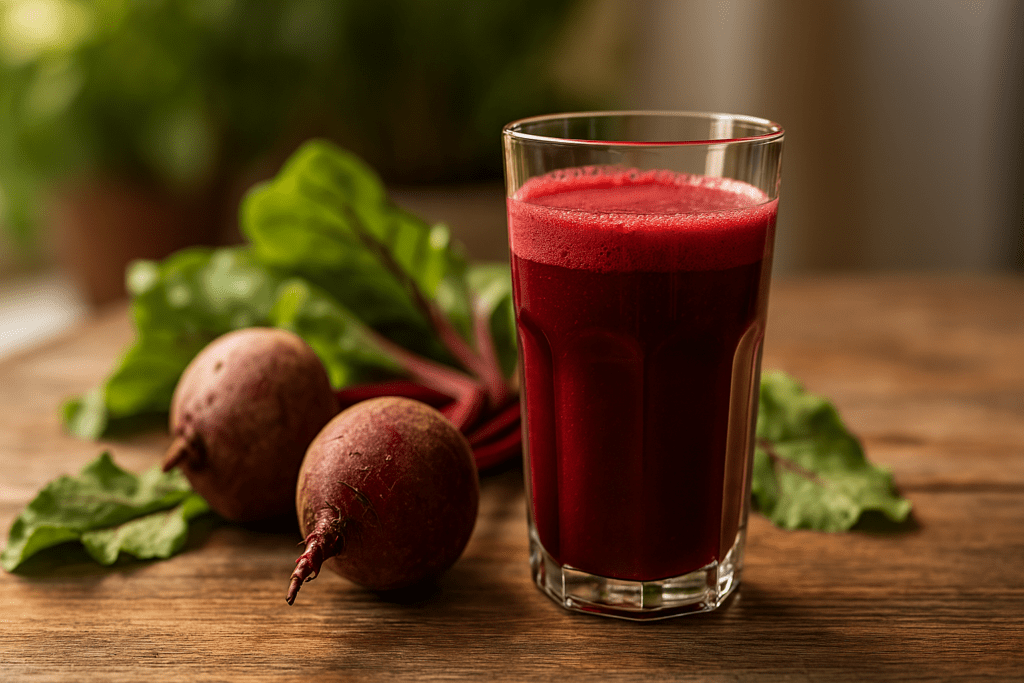Arterial plaque, a buildup of fatty deposits, cholesterol, calcium, and other substances in the arteries, is a leading cause of cardiovascular diseases such as coronary artery disease, stroke, and peripheral artery disease. Over time, this accumulation narrows and hardens the arteries, reducing blood flow and increasing the risk of life-threatening health complications. Many individuals wonder whether it’s possible to reverse 20 years of arterial plaque naturally and restore vascular health without resorting to invasive procedures. Emerging scientific evidence suggests that with a combination of lifestyle modifications, plant-based nutrition, and targeted natural interventions, it may be possible to reverse arterial plaque and improve cardiovascular outcomes.
In this article, we explore evidence-based strategies on how to reverse 20 years of arterial plaque naturally, emphasizing scientifically validated approaches that promote heart health, clean blood vessels, and reduce the risk of cardiovascular disease. We will delve into the critical role of whole-food plant-based nutrition, the power of regular physical activity, the impact of stress management, and the potential of natural compounds to support vascular cleansing and arterial health.
You may also like: How a Vegan Diet Can Help Reverse Heart Disease: What the Science Says
Understanding Arterial Plaque and Its Impact on Heart Health
Arterial plaque forms as a result of a process called atherosclerosis, where fatty deposits accumulate in the inner lining of the arteries. Over decades, this buildup narrows and stiffens the arteries, limiting blood flow to vital organs, including the heart and brain. If left untreated, this condition can lead to severe cardiovascular events, including heart attacks and strokes.
The development of atherosclerosis typically begins early in life and progresses silently over years, often showing no symptoms until a significant blockage occurs. Calcium deposits, cholesterol, and inflammatory cells combine to create plaque that thickens artery walls. However, research indicates that plaque can be stabilized, and in some cases, partially reversed through aggressive lifestyle changes and targeted nutritional interventions. Therefore, understanding the mechanisms behind plaque formation and identifying evidence-based approaches to reverse 20 years of arterial plaque naturally is essential for maintaining optimal heart health.

The Role of Whole-Food Plant-Based Nutrition in Reversing Arterial Plaque
One of the most effective ways to reverse 20 years of arterial plaque naturally is by adopting a whole-food, plant-based (WFPB) diet. Research led by Dr. Dean Ornish and Dr. Caldwell Esselstyn demonstrates that a diet centered on fruits, vegetables, whole grains, legumes, and nuts can halt, and even reverse, atherosclerosis. Whole-food plant-based nutrition is rich in fiber, antioxidants, and phytonutrients that work synergistically to reduce inflammation, lower cholesterol, and improve endothelial function.
A plant-based diet naturally lowers LDL cholesterol, often referred to as “bad cholesterol,” which is a key driver of plaque formation. Soluble fiber found in oats, beans, and lentils binds to cholesterol and facilitates its excretion, effectively reducing serum cholesterol levels. Moreover, plant-based foods are free of dietary cholesterol and saturated fats commonly found in animal products, which further contributes to vascular cleansing and artery health. Antioxidants present in fruits and vegetables combat oxidative stress, preventing further damage to artery walls.
Additionally, nitric oxide, a molecule that plays a crucial role in maintaining vascular health, is boosted by plant-based foods such as leafy greens, beets, and pomegranates. Nitric oxide helps relax and dilate blood vessels, improving circulation and reducing arterial stiffness. As a result, incorporating a WFPB diet can not only prevent the progression of atherosclerosis but also facilitate the reversal of clogged arteries and arterial plaque.

How to Reverse 20 Years of Arterial Plaque Naturally Through Lifestyle Modifications
In addition to adopting a whole-food plant-based diet, making targeted lifestyle changes is essential for reversing 20 years of arterial plaque naturally. Lifestyle modifications such as regular physical activity, stress management, and maintaining a healthy weight contribute to vascular cleansing and the promotion of heart health.
The Impact of Physical Activity on Arterial Health
Regular physical activity is a cornerstone of cardiovascular health and plays a significant role in reversing plaque buildup in arteries. Aerobic exercise, such as brisk walking, cycling, swimming, and running, improves endothelial function, increases nitric oxide production, and enhances blood circulation. Engaging in moderate-intensity aerobic activity for at least 150 minutes per week or vigorous-intensity exercise for 75 minutes per week can help clean arteries and promote better vascular health.
Exercise has been shown to increase high-density lipoprotein (HDL) cholesterol, commonly referred to as “good cholesterol,” which helps remove excess cholesterol from the bloodstream and transport it back to the liver for excretion. Moreover, regular physical activity reduces inflammation, a key contributor to atherosclerosis, and enhances the body’s ability to repair damaged endothelial cells, reducing the likelihood of further plaque formation.

Stress Management and Its Role in Preventing Plaque Buildup
Chronic stress triggers the release of stress hormones such as cortisol and adrenaline, which contribute to inflammation and endothelial dysfunction. Prolonged exposure to high stress levels has been linked to an increased risk of cardiovascular disease and plaque formation. Therefore, incorporating stress management techniques such as mindfulness meditation, deep breathing exercises, yoga, and progressive muscle relaxation can support heart health and contribute to reversing atherosclerosis naturally.
Mind-body practices not only reduce stress but also promote parasympathetic nervous system activation, which helps relax blood vessels and lower blood pressure. By managing stress effectively, individuals can improve arterial flexibility and reduce the risk of coronary artery blockage, further enhancing vascular cleansing naturally.
Natural Compounds That Support Vascular Cleansing and Plaque Reduction
In addition to lifestyle modifications and plant-based nutrition, several natural compounds have demonstrated the potential to support vascular cleansing and aid in the reversal of clogged arteries. Incorporating these compounds into a heart-healthy regimen can provide additional support in reversing 20 years of arterial plaque naturally.
The Power of Garlic in Arterial Health
Garlic, rich in sulfur-containing compounds such as allicin, has been extensively studied for its cardiovascular benefits. Research suggests that garlic supplementation can lower blood pressure, reduce LDL cholesterol, and inhibit the oxidation of LDL particles—an essential factor in plaque formation. Garlic also enhances nitric oxide production, improving endothelial function and promoting artery dilation. Consuming fresh garlic or taking standardized garlic supplements can contribute to plaque regression and improve overall arterial health.
Curcumin: A Potent Anti-Inflammatory Agent
Curcumin, the active compound in turmeric, possesses powerful anti-inflammatory and antioxidant properties that support cardiovascular health. Studies indicate that curcumin can reduce inflammation in the arterial walls, preventing further plaque progression. Curcumin also improves endothelial function and inhibits platelet aggregation, reducing the risk of blood clots that can lead to heart attacks. Incorporating turmeric into daily meals or taking curcumin supplements can aid in reversing clogged arteries naturally.
Omega-3 Fatty Acids for Cardiovascular Protection
Omega-3 fatty acids, found in fatty fish, flaxseeds, chia seeds, and walnuts, play a critical role in reducing inflammation, lowering triglyceride levels, and improving arterial flexibility. Research has shown that omega-3s can slow the progression of atherosclerosis and reduce the risk of cardiovascular events. Supplementing with high-quality omega-3 fatty acids or increasing the intake of plant-based sources can enhance arterial health and promote vascular cleansing naturally.
Can Plaque in Arteries Be Reversed? Exploring the Scientific Evidence
The question of whether plaque in arteries can be reversed has been the subject of extensive research. Studies by Dr. Dean Ornish and Dr. Caldwell Esselstyn have demonstrated that a comprehensive lifestyle intervention, including a whole-food plant-based diet, regular physical activity, stress management, and social support, can reverse coronary artery disease. Patients who adhered to this multifaceted approach experienced regression of plaque, improved blood flow, and reduced cardiovascular risk.
A landmark study published in The Lancet reported that patients who followed an intensive lifestyle intervention for one year showed significant plaque regression and improved myocardial perfusion. Similarly, a study published in JAMA found that patients with severe coronary artery disease who adopted a plant-based diet and engaged in regular exercise experienced plaque regression and reduced angina symptoms.
These findings underscore the potential of lifestyle and dietary interventions to reverse atherosclerosis and improve heart health. While complete reversal of 20 years of arterial plaque may not be achievable in every case, consistent adherence to evidence-based strategies can lead to substantial improvements in arterial health and reduced cardiovascular risk.
How to Clean Arteries and Prevent Future Plaque Buildup
In addition to reversing existing plaque, it is crucial to adopt strategies that prevent future plaque formation and maintain long-term arterial health. Preventive measures include maintaining optimal lipid profiles, managing blood pressure, controlling blood sugar levels, and avoiding tobacco use.
The Importance of Controlling Cholesterol Levels
Keeping cholesterol levels within a healthy range is essential for preventing plaque buildup. LDL cholesterol, which contributes to plaque formation, should be kept low, while HDL cholesterol, which promotes cholesterol removal, should be maintained at optimal levels. Consuming fiber-rich foods, reducing saturated fat intake, and incorporating plant sterols can effectively manage cholesterol levels and promote arterial health.
Blood Pressure Management for Long-Term Arterial Health
Hypertension, or high blood pressure, places undue stress on the arterial walls, making them more susceptible to plaque buildup. Implementing lifestyle changes such as reducing sodium intake, maintaining a healthy weight, engaging in regular physical activity, and managing stress can help maintain healthy blood pressure levels and prevent further arterial damage.
Is Atherosclerosis Reversible? Understanding the Long-Term Outlook
Reversing 20 years of arterial plaque naturally requires a comprehensive and sustained commitment to lifestyle and dietary changes. While complete reversal may not be possible in every case, significant improvements in arterial health, blood flow, and cardiovascular function can be achieved through consistent adherence to evidence-based strategies.
It is important to recognize that atherosclerosis is a progressive condition that requires ongoing management and monitoring. Regular screenings, lipid profile assessments, and consultations with healthcare providers can help track progress and ensure that preventive measures are effectively implemented.
Frequently Asked Questions (FAQ)
1. Can Plaque in Arteries Be Reversed Completely?
While it is possible to reverse arterial plaque naturally through evidence-based lifestyle changes, complete elimination of all plaque may not always be feasible, especially after 20 years of progression. Plaque that has hardened over the years often becomes calcified, making it less responsive to natural interventions. However, lifestyle modifications such as adopting a whole-food plant-based diet, engaging in regular exercise, and incorporating natural anti-inflammatory compounds can lead to the stabilization and partial regression of plaque. In addition, vascular cleansing naturally through improved endothelial function helps restore arterial flexibility and slow the progression of atherosclerosis. Even if complete reversal is not achieved, the reduction in plaque volume and improved blood flow significantly lowers the risk of cardiovascular events.
2. How Do You Unclog Your Arteries Without Surgery?
If you are looking to reverse clogged arteries without resorting to surgical procedures, focusing on lifestyle adjustments and dietary modifications is crucial. A whole-food plant-based diet, rich in fiber and antioxidants, has been shown to improve endothelial function and reduce inflammation, helping to unclog arteries naturally. Incorporating natural compounds such as garlic, turmeric, and omega-3 fatty acids can further support artery cleansing by lowering cholesterol and preventing plaque oxidation. Regular physical activity, particularly aerobic exercise, improves circulation and promotes vascular cleaning by enhancing nitric oxide production. Stress management techniques like mindfulness and meditation also contribute by reducing inflammation and lowering blood pressure, which minimizes strain on the arteries.
3. What Are the Best Natural Ways to Unclog Arteries?
Several natural approaches can support artery cleansing and promote cardiovascular health over time. Consuming foods that are high in soluble fiber, such as oats, beans, and flaxseeds, helps reduce LDL cholesterol, preventing further plaque buildup. Pomegranate juice, rich in antioxidants and polyphenols, has been shown to improve arterial health and reduce oxidative stress, which can aid in reversing plaque in arteries. Additionally, incorporating anti-inflammatory foods like turmeric and ginger into daily meals can help reduce arterial inflammation and slow the progression of atherosclerosis. Regular consumption of plant-based omega-3 sources such as chia seeds and walnuts provides essential fatty acids that enhance vascular cleansing naturally. Finally, maintaining a healthy weight and avoiding processed foods can further prevent plaque buildup and support long-term heart health.
4. How to Remove Calcium Deposits from Arteries Naturally?
Calcium deposits, a hallmark of advanced atherosclerosis, can contribute to arterial stiffness and increase the risk of heart disease. While removing calcium deposits entirely may not be possible, several strategies can slow their progression and improve arterial health. Vitamin K2, found in fermented foods and certain cheeses, plays a vital role in directing calcium away from the arteries and into the bones, reducing arterial calcification. Magnesium, present in leafy greens, nuts, and seeds, supports vascular relaxation and helps prevent calcium buildup in arterial walls. Additionally, antioxidants like vitamin C and polyphenols found in berries and green tea combat oxidative stress, which contributes to plaque formation. Combining these approaches with a heart-healthy diet and regular exercise can promote artery cleansing and prevent further calcification.
5. Can You Reverse Coronary Heart Disease with Lifestyle Changes Alone?
Research suggests that adopting a comprehensive lifestyle intervention can significantly slow, and in some cases, reverse coronary heart disease. A combination of plant-based nutrition, regular physical activity, stress management, and adequate sleep creates an environment conducive to reversing arterial plaque and promoting vascular health. Studies by Dr. Dean Ornish and Dr. Caldwell Esselstyn demonstrate that patients who adhered strictly to a whole-food plant-based diet experienced plaque regression and improved myocardial blood flow. Additionally, avoiding processed foods, reducing sodium intake, and incorporating antioxidant-rich foods can enhance artery cleansing. While results vary depending on the extent of the disease, consistent adherence to these strategies can produce measurable improvements in heart health over time.
6. How Can Vascular Cleansing Naturally Improve Arterial Health?
Vascular cleansing naturally involves adopting practices that enhance endothelial function, reduce inflammation, and prevent the progression of atherosclerosis. One effective way to achieve this is by increasing the intake of nitric oxide-boosting foods, such as leafy greens, beets, and citrus fruits, which promote vasodilation and improve blood flow. Hydration also plays a crucial role, as adequate water intake helps maintain blood viscosity and prevent plaque from adhering to artery walls. Regular consumption of antioxidant-rich foods, including berries and green tea, further supports vascular cleaning by reducing oxidative damage. Additionally, avoiding tobacco products and limiting alcohol intake can prevent endothelial dysfunction and support long-term arterial health.
7. Is Atherosclerosis Reversible in Its Early Stages?
Atherosclerosis is most reversible during its early stages when plaque buildup is less advanced and arterial flexibility is still preserved. At this stage, lifestyle interventions and dietary changes can significantly impact plaque reduction and prevent further progression. A diet low in saturated fats and refined sugars, combined with regular exercise, helps reduce cholesterol levels and improve endothelial function, which is essential for reversing atherosclerosis. Anti-inflammatory compounds such as curcumin, resveratrol, and quercetin provide additional support by inhibiting inflammatory pathways that contribute to plaque buildup. Incorporating stress management techniques and maintaining healthy blood pressure can further enhance vascular cleaning and create conditions conducive to plaque regression.
8. How Long Does It Take to See Results from Natural Plaque Reversal Strategies?
The timeline for reversing plaque in arteries naturally varies depending on the severity of atherosclerosis, individual genetic factors, and adherence to lifestyle changes. In most cases, noticeable improvements in arterial health can be observed within 6 to 12 months of adopting a whole-food plant-based diet, regular physical activity, and stress management techniques. However, significant plaque regression may take several years of consistent adherence to evidence-based strategies. Blood tests measuring lipid profiles, inflammatory markers, and arterial stiffness can provide indicators of progress. While reversing 20 years of arterial plaque naturally may require a longer commitment, the cumulative benefits of sustained lifestyle changes lead to improved heart health and a reduced risk of cardiovascular events.
9. How to Naturally Clear Arteries After Years of Plaque Buildup?
Reversing years of arterial plaque buildup naturally requires a multifaceted approach that addresses the root causes of atherosclerosis. Incorporating foods rich in soluble fiber, such as lentils, barley, and apples, helps lower LDL cholesterol, reducing plaque accumulation. Omega-3 fatty acids found in flaxseeds and walnuts support anti-inflammatory pathways that prevent further plaque progression. Consuming foods that boost nitric oxide production, such as spinach and arugula, enhances blood vessel flexibility and promotes vascular cleansing. Additionally, minimizing exposure to environmental toxins and reducing stress through practices like yoga and deep breathing can further support arterial health. Over time, these interventions contribute to the gradual regression of plaque and improved cardiovascular function.
10. What Are the Long-Term Benefits of Reversing Arterial Plaque Naturally?
Reversing arterial plaque naturally offers a host of long-term benefits that extend beyond heart health. Improved blood flow enhances oxygen delivery to vital organs, reducing the risk of stroke, peripheral artery disease, and kidney dysfunction. Lowering inflammation and oxidative stress supports cognitive health and may reduce the risk of neurodegenerative diseases such as Alzheimer’s. Enhanced endothelial function contributes to better blood pressure regulation, reducing strain on the cardiovascular system. Additionally, adopting a lifestyle centered on whole-food plant-based nutrition and regular physical activity promotes longevity and a higher quality of life. These long-term benefits underscore the importance of making sustainable lifestyle choices to support heart health and overall well-being.
Conclusion: Taking Charge of Your Heart Health Through Natural Strategies
Reversing 20 years of arterial plaque naturally is not an overnight process, but with dedication, evidence-based lifestyle changes, and a focus on whole-food plant-based nutrition, remarkable improvements in arterial health can be achieved. By adopting a plant-based diet, engaging in regular physical activity, managing stress, and incorporating heart-healthy natural compounds such as garlic, curcumin, and omega-3 fatty acids, individuals can promote vascular cleansing and reduce the risk of cardiovascular events.
Scientific evidence demonstrates that plaque regression and improved arterial function are possible through comprehensive lifestyle interventions. While the journey to reverse clogged arteries may require persistence and commitment, the long-term benefits of enhanced cardiovascular health, reduced risk of heart disease, and improved quality of life make the effort worthwhile. By taking proactive steps to clean blood vessels and prevent future plaque buildup, individuals can take charge of their heart health and enjoy a healthier, longer life.
natural heart health strategies, reduce cholesterol naturally, plant-based diet for heart health, prevent heart disease without medication, cardiovascular health improvement, lower blood pressure naturally, heart-healthy lifestyle changes, reduce inflammation in arteries, improve blood circulation, boost nitric oxide production, antioxidant-rich foods for heart, reversing cardiovascular disease, unclog arteries naturally, enhance endothelial function, anti-inflammatory foods for heart health, omega-3s for arterial health, garlic benefits for heart, curcumin and heart disease, stress management for heart health, prevent plaque buildup in arteries
Further Reading:
Is It Possible to Unclog Your Arteries?
Can we reduce plaque buildup in arteries?
Can You Reverse Coronary Artery Disease?
Disclaimer
The information contained in this article is provided for general informational purposes only and is not intended to serve as medical, legal, or professional advice. While NewsHealthWatch strives to present accurate, up-to-date, and reliable content, no warranty or guarantee, expressed or implied, is made regarding the completeness, accuracy, or adequacy of the information provided. Readers are strongly advised to seek the guidance of a qualified healthcare provider or other relevant professionals before acting on any information contained in this article. NewsHealthWatch, its authors, editors, and contributors expressly disclaim any liability for any damages, losses, or consequences arising directly or indirectly from the use, interpretation, or reliance on any information presented herein. The views and opinions expressed in this article are those of the author(s) and do not necessarily reflect the official policies or positions of NewsHealthWatch.

